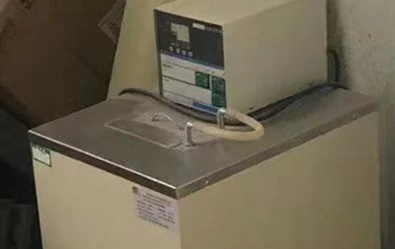loading...
- No. 9, Xingyuan South Street, Dongwaihuan Road, Zaoqiang County, Hengshui, Hebei, China
- admin@zjcomposites.com
- +86 15097380338
- Welcome to visit our website!
How to Choose the Right Water Softener for Your Home Needs and Preferences
The Importance of Water Softeners Enhancing Water Quality for Homes
Water softeners are becoming increasingly essential in modern households, especially in regions where hard water is prevalent. Hard water contains high levels of minerals, particularly calcium and magnesium, which can lead to various problems in daily life. Understanding the function and benefits of water softeners can help homeowners make informed decisions about water treatment systems.
What is Hard Water?
Hard water is defined by its mineral content, specifically calcium and magnesium ions. These minerals are naturally occurring and often come from groundwater sources. While hard water is generally safe to drink, it can cause a myriad of issues in household appliances, plumbing, and even on the skin and hair. Common symptoms of hard water include limescale buildup in pipes, reduced efficiency in appliances, and dry skin or dull hair after washing.
How Do Water Softeners Work?
Water softeners work through a process called ion exchange. In this process, the hard water passes through a tank filled with resin beads that are coated with sodium ions. As the hard water flows through the tank, the calcium and magnesium ions in the water attach themselves to the resin beads while sodium ions are released into the water. This exchange effectively softens the water by removing the hard minerals and replacing them with sodium.
The system requires regular maintenance, including adding salt to the brine tank to replenish the sodium ions. It’s crucial for homeowners to perform routine checking and refilling to ensure optimal functionality and lifespan of the water softener.
water softener

Benefits of Using a Water Softener
1. Improved Appliance Lifespan One of the most significant benefits of using a water softener is the increased longevity of appliances. Hard water can lead to mineral buildup in appliances such as dishwashers, water heaters, and laundry machines, drastically reducing their lifespan and efficiency. Softened water can prevent these issues, ultimately saving homeowners money on repairs and replacements.
2. Better Cleaning Efficiency Softened water allows soaps and detergents to lather more effectively. This means that less soap is required for cleaning dishes, clothes, and surfaces, leading to both cost savings and a more efficient cleaning process. Additionally, dishes are left spot-free, and clothes may feel softer and look brighter.
3. Healthier Skin and Hair Individuals who suffer from dry skin or hair may benefit from softened water. Hard minerals in water can exacerbate these conditions. Softened water leaves skin feeling cleaner and more moisturized and can help enhance the natural shine and texture of hair.
4. Reduced Limescale Buildup Limescale buildup can clog pipes and damage appliances over time, leading to costly repairs. By softening the water, homeowners can significantly reduce or eliminate limescale formation, resulting in smoother plumbing and more efficient water flow.
Conclusion
Investing in a water softener can yield numerous benefits that go beyond just symptom relief from hard water. From enhancing appliance efficiency and lifespan to improving personal care and cleaning processes, the advantages are compelling. As awareness of water quality issues continues to grow, water softeners have emerged as a wise choice for homeowners wishing to optimize their water use. Whether you are struggling with hard water symptoms or simply seeking a better quality of life, a water softener could be the solution you need for a healthier and more efficient home.
-
GRP Structures: The Future of Lightweight, High-Performance EngineeringNewsJun.20,2025
-
FRP Water Tank: High-Performance Storage for Corrosive and Clean Water SystemsNewsJun.20,2025
-
FRP Square Tube: The New Industry Standard for Chemical and Structural ApplicationsNewsJun.20,2025
-
FRP Pultruded Profiles: The Ultimate Choice for Lightweight Structural StrengthNewsJun.20,2025
-
FRP Handrails: The Safer, Smarter, and Stronger Choice for Modern InfrastructureNewsJun.20,2025
-
FRP Grating: The Smart Solution for Durable, Lightweight Industrial FlooringNewsJun.20,2025
-
Why Choose a Galvanized Water Tank for Your Storage NeedsNewsMay.21,2025
